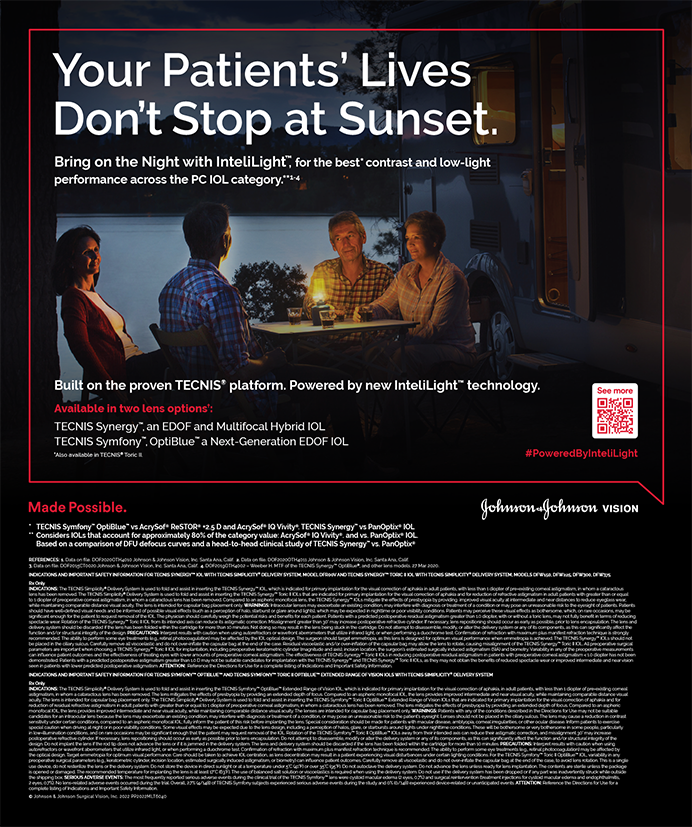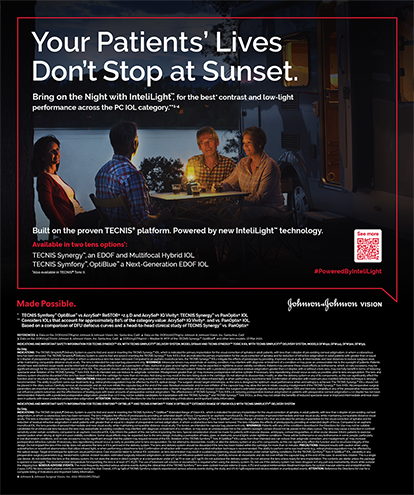This issue of Cataract & Refractive Surgery Today examines the practicality of redefining the relationship between the surgeon and patient as it relates to claims of professional liability, assertions of negligence, poor surgical results, and alleged malpractice. Recently, some physicians have advocated using binding arbitration agreements to address disputes between the parties. In refractive surgery, advocates argue that the purely elective nature of procedures lends itself well to arbitration agreements. If the patient and the surgeon cannot agree in advance how disputes will be resolved, perhaps their relationship should end prior to surgery.
The idea of using binding arbitration as part of the practice of medicine will undoubtedly elicit strong opinions. Some practitioners will argue that, although the current system is flawed, plaintiff's attorneys will eventually overcome any attempt to limit surgeons' liability or prearrange binding arbitration. Others will assert that we are foolishly gambling each time we perform a procedure and should insist on the protections offered by limited liability. Nearly everyone agrees that the current system is broken. We need one that punishes true negligence with realistic damage awards but that also differentiates between a mal-event and malpractice.
THE PRICE OF LITIGATION
We live in a society in which invisible liability surcharges are attached to virtually everything. Current trends in product liability, for example, have the potential to substantially affect the growth of our economy. The next time you visit a hardware store, look at the warning label on an aluminum ladder. Consider how much of that ladder's price is due to the contingency of claims from individuals who electrocute themselves with power tools while standing barefoot on the ladder while it is partially submerged in a swimming pool. Such a person may win a Darwin Award for removing himself from the gene pool, but his heirs may garner a significant jury award. The impact of this chain of events on our economy cannot be overemphasized.
Consider the Pennsylvania teenager who sued her former softball coach for $700,000 in damages because, she claimed, his poor coaching cost her an athletic scholarship.1 What about the Houston ambulance driver who was fired for stopping to buy doughnuts while transporting a patient to Ben Taub Hospital and then sued the city for emotional distress?2 Then there was the tort law professor at Pace University in White Plains, New York, who was sued for $5 million by one of his students, who claimed that the professor pulled the seat out from under her in order to demonstrate personal injury lawsuits. She asserted that she suffers from severe mental and physical anguish as a result of the demonstration.3
These extreme cases are amusing to a degree, but each triggered a small hurricane of legal fees and court costs, in addition to wasting a great amount of time. However absurd, these lawsuits required the defendant to obtain counsel and march through the legal process, and they demonstrate that our culture is one in which the immediate reaction to any unfortunate event is the cold calculation of whose pockets are deepest for the picking. The cost of liability insurance for protection against these lawsuits is another silent tax that we all pay.
THE EFFECT ON DOCTORS
Astronomical professional liability judgments have been made against physicians of nearly all medical specialties, and, in many states, the situation has reached near-crisis proportions. A sophisticated and elaborate industry of plaintiff's attorneys has evolved to focus on many medical specialties. If you dare, perform an Internet search for “lasik lawyer,” and you will see Web sites as elaborate as any promoting the benefits of undergoing refractive surgery. Professional liability insurance has become difficult to obtain in many areas, and excellent physicians have considered giving up their practices as a result of the current medicolegal environment.
Why Use Them?
There are ethical, reasonable plaintiff's attorneys who deem frivolous—and therefore screen out—the majority of inquiries they receive. As physicians, we should recognize that these attorneys work on a contingency and stand to lose a great deal of money if they chase a losing case. Most plaintiff's attorneys tend to pick their cases carefully. Nevertheless, there are unethical individuals in the legal profession who view each new lead as a free spin of the roulette wheel. Unfortunately, it only takes one large award to substantially impact the average surgeon's net worth.
Perhaps the best way to address the problem with the legal system is either to remove ourselves collectively from or fundamentally alter it. Arbitration agreements may accomplish the latter by clearly defining how disputes should be handled if they arise. Although arbitration agreements will almost certainly prevent astronomical, nonsensical judgments, they may actually result in a greater percentage of awards for plaintiffs. The majority of professional liability cases currently never make it to trial, and most of those that do are won by the physician. Arbitration panels, by contrast, tend to grant more awards but of a much lower magnitude.4
Will They Work for All Specialties?
Although arbitration agreements may be well suited for elective refractive surgery, they may not be appropriate for other specialties. Consider the example of an elderly patient who is legally blind from cataracts in a community in which no surgeon will operate without a binding arbitration agreement. There is always the possibility that the arbitration clause will eventually be thrown out of court. In that instance, juries may be prejudiced by the plaintiff's attorney's portrayal of the surgeon as a steely-eyed, callous individual who essentially coerced the plaintiff into signing the arbitration agreement. The situation for glaucoma surgery or hip replacements would be even more poignant.
THE H.E.A.L.T.H. ACT
Fundamentally altering the legal system requires legislation. The US House of Representatives passed the H.E.A.L.T.H. Act (Help Efficient, Accessible, Low Cost, Timely Healthcare Act of 2002 [S 2793, HR 4600]) in 2002, and similar legislation awaits action by the US Senate. The H.E.A.L.T.H. Act includes the following provisions: (1) recovery of all lost wages, rehabilitation costs, and other economic damages; (2) limits on plaintiff's lawyers' fees; and (3) a $250,000 cap on non-economic damages.
A system such as the one described has worked in California for more than 25 years, and the California statute was the basis for the currently proposed legislation. As a nation, we face a crisis much like the one that affected California in the 1970s. We have little choice but to make changes.
CONCLUSION
This month's issue of CRSToday provides a detailed look at the legal issues I have just described. The laws governing these issues vary widely between states, and it is important to determine the propriety of any form of binding arbitration agreements in your own local jurisdiction. In Texas, for example, the use of such agreements is considered a violation of the State Medical Practice Act unless very specific language is included. Despite the challenges involved in their use, I believe that binding arbitration agreements are worth considering for refractive surgery patients.
1. Teen Sues Over Bad Coaching. The Philadelphia Inquirer. May 2, 2002.
2. Judge Dismisses Ambulance Driver's Bias Suit. Houston Chronicle. June 27, 2002.
3. The Three Stooges Go to Law School. New York Press. June 26, 2001.
4. Albert T. Plaintiffs win birth lawsuits most often. American Medical News. April 14, 2003.


